Forbidden Fruit THCA—A Flavorful Option for Enthusiasts
In the ever-evolving world of cannabis, enthusiasts are constantly seeking new and exciting strains that offer unique experiences. Among the many varieties available today, Forbidden Fruit THCA stands out as a particularly compelling choice for those who appreciate both exceptional flavor profiles and potent effects. This remarkable strain combines the best of both worlds: the distinctive taste characteristics that have made Forbidden Fruit a beloved cultivar, enhanced by the powerful potential of high THCA content.
Forbidden Fruit is famed for its tangy, fruity aroma and eye-catching purple hues. When combined with high THCA levels, it can deliver a flavorful experience that stands out among more traditional strains. Many connoisseurs love the unique terpene combination, describing hints of grapefruit and passion fruit. If you're purchasing wholesale thca smalls of Forbidden Fruit, remember to store them properly to preserve their vibrant color and taste.
Understanding THCA: The Precursor to Potency
Before diving deeper into the specifics of Forbidden Fruit THCA, it's essential to understand what THCA actually is and why it's become such a significant focus in the cannabis industry. THCA, or tetrahydrocannabinolic acid, is the non-psychoactive precursor to THC found in raw cannabis plants. In its natural state, THCA doesn't produce the intoxicating effects commonly associated with cannabis consumption. However, when exposed to heat through processes like smoking, vaping, or cooking, THCA undergoes decarboxylation, converting into the psychoactive THC that produces the familiar effects.
This unique characteristic of THCA has made it particularly interesting for both recreational users and those seeking potential therapeutic benefits. Many consumers appreciate having control over when and how the conversion occurs, allowing for more precise dosing and consumption methods. The high THCA content in strains like Forbidden Fruit provides users with potent potential that can be activated on demand.
For those interested in exploring THCA products, options range from thca flower pound quantities for serious enthusiasts to smaller amounts for those just beginning their journey. The variety of available formats ensures that there's something suitable for every level of consumer, from casual users to dedicated connoisseurs.
The Forbidden Fruit Lineage: A Tale of Exceptional Genetics
Forbidden Fruit's impressive characteristics don't happen by accident. This strain is the result of careful breeding that combines Cherry Pie and Tangie genetics, creating a hybrid that captures the best qualities of both parent strains. The Cherry Pie influence contributes to the strain's relaxing properties and sweet undertones, while Tangie brings the bright, citrusy notes that make Forbidden Fruit so distinctive.
The visual appeal of Forbidden Fruit is immediately striking. The buds display a rich tapestry of colors, with deep purple hues interwoven with vibrant green and accented by bright orange pistils. This colorful appearance isn't just for show—it's indicative of the complex chemical profile that makes this strain so special. The anthocyanins responsible for the purple coloration often correlate with unique terpene profiles and enhanced therapeutic properties.
When examining high-quality Forbidden Fruit THCA products, whether in the form of thca smalls or premium buds, the visual quality serves as an immediate indicator of the product's overall excellence. The preservation of these natural colors requires careful cultivation, harvesting, and storage techniques that speak to the producer's commitment to quality.
Terpene Profile: The Source of Forbidden Fruit's Distinctive Character
The magic of Forbidden Fruit lies not just in its THCA content but in its remarkable terpene profile. Terpenes are aromatic compounds found throughout nature, including in cannabis, that contribute to both flavor and potential effects. Forbidden Fruit's terpene composition creates a complex sensory experience that sets it apart from other strains.
The dominant terpenes in Forbidden Fruit typically include myrcene, limonene, and caryophyllene, among others. Myrcene contributes to the strain's relaxing properties and adds earthy, musky notes to the overall profile. Limonene brings the bright citrus characteristics that many users describe as grapefruit-like, while caryophyllene adds spicy, peppery notes that provide depth and complexity.
This terpene symphony creates the distinctive aroma that Forbidden Fruit enthusiasts have come to love. The initial scent often presents as sweet and fruity, with prominent grapefruit and passion fruit notes dancing alongside subtler earthy undertones. As the product is consumed, these flavors evolve and develop, revealing new layers of complexity that keep users engaged throughout the experience.
For those working with bulk thca flower, understanding these terpene profiles becomes crucial for proper storage and handling. Terpenes are volatile compounds that can be easily lost if products aren't stored correctly, which is why professional storage techniques are so important for maintaining quality.
Processing and Product Forms: From Flower to Concentrates
Forbidden Fruit THCA is available in various forms, each offering unique advantages and consumption experiences. The most traditional form is flower, which preserves the full spectrum of cannabinoids and terpenes in their natural ratios. High-quality Forbidden Fruit THCA flower maintains the strain's characteristic appearance, aroma, and flavor profile while providing the potent THCA content that users seek.
For those interested in concentrated experiences, thca wax represents another popular option. THCA wax concentrates offer higher potency levels while still maintaining much of the strain's terpene profile. The extraction process used to create these concentrates requires sophisticated equipment and expertise to preserve the delicate compounds that make Forbidden Fruit special.
THCA dabs provide yet another consumption method, appealing to users who prefer vaporization techniques. Dabbing allows for precise temperature control, which can help preserve terpenes while effectively decarboxylating the THCA. This method often provides immediate and potent effects, making it popular among experienced users.
The diversity of available forms means that Forbidden Fruit THCA can accommodate various preferences and consumption styles. Whether someone prefers the traditional approach of smoking flower or the modern convenience of concentrates, there are options available to suit their needs.
Economic Considerations: Understanding THCA Market Dynamics
The THCA market has experienced significant growth and evolution, with pricing structures that reflect both quality and market demand. For consumers looking at larger quantities, options like thca pounds $500 represent significant value for those with appropriate needs and legal compliance.
The availability of thca pounds at various price points reflects the diverse quality levels and processing methods used throughout the industry. Premium products like high-grade Forbidden Fruit THCA command higher prices due to their superior genetics, careful cultivation, and expert processing.
For businesses and serious enthusiasts, thca wholesale options provide access to larger quantities at more favorable pricing structures. Wholesale purchasing requires careful consideration of storage capabilities, legal compliance, and consumption planning, but it can offer significant economic advantages for qualified buyers.
Some market segments have seen the emergence of budget-friendly options like $100/lb thca flower, though buyers should carefully evaluate quality and source when considering such pricing. While lower prices can be attractive, they often reflect compromises in genetics, cultivation methods, or processing techniques that may impact the final product quality.
The bulk thca market serves various segments, from individual enthusiasts to commercial operations. Understanding the different quality tiers and pricing structures helps consumers make informed decisions that align with their specific needs and budgets.
Cultivation Insights: What Makes Quality Forbidden Fruit THCA
The production of high-quality Forbidden Fruit THCA begins long before harvest, with cultivation techniques that maximize both cannabinoid production and terpene preservation. Successful Forbidden Fruit cultivation requires attention to environmental factors including temperature, humidity, lighting, and nutrient management.
Temperature control plays a crucial role in developing Forbidden Fruit's characteristic purple coloration. Cooler temperatures during the flowering period encourage anthocyanin production, which creates the stunning visual appeal that makes this strain so recognizable. However, maintaining proper temperature ranges while optimizing THCA production requires skilled cultivation practices.
Harvest timing significantly impacts both THCA levels and terpene preservation. Harvesting too early may result in lower cannabinoid content, while waiting too long can lead to THCA degradation and terpene loss. Expert cultivators monitor trichome development and other indicators to determine the optimal harvest window for maximum quality.
Post-harvest processing continues to influence final product quality. Proper drying and curing techniques preserve terpenes while maintaining THCA stability. These processes require controlled environments and careful monitoring to achieve the best possible results.
Storage and Preservation: Maintaining Quality Over Time
Proper storage becomes critical when dealing with any THCA product, but it's particularly important for terpene-rich strains like Forbidden Fruit. The volatile compounds that create this strain's distinctive aroma and flavor can be easily lost through improper storage techniques.
Temperature control represents one of the most important storage considerations. THCA is relatively stable at room temperature, but excessive heat can cause premature decarboxylation, converting THCA to THC and potentially altering the intended effects. Conversely, extremely cold temperatures can make trichomes brittle and prone to breaking off.
Light exposure poses another significant threat to THCA product quality. UV light can degrade both cannabinoids and terpenes, leading to diminished potency and altered flavor profiles. Proper storage containers should block light exposure while maintaining appropriate atmospheric conditions.
Humidity control helps preserve product integrity while preventing mold and mildew development. The ideal humidity range varies depending on the specific product form, but generally falls between 55-65% relative humidity for flower products. Too much moisture creates contamination risks, while insufficient humidity can lead to overly dry products that lose terpenes and become harsh to consume.
Air exposure should be minimized through proper container selection and sealing techniques. Oxygen can contribute to cannabinoid degradation and terpene loss over time. Vacuum sealing or nitrogen flushing can help extend product shelf life for long-term storage situations.
Consumption Methods and Experience Profiles
Forbidden Fruit THCA offers versatility in consumption methods, each providing different onset times, duration, and overall experience characteristics. Understanding these differences helps users select the most appropriate method for their specific goals and preferences.
Smoking remains one of the most popular consumption methods for THCA flower. The combustion process immediately decarboxylates THCA, providing rapid onset of effects. When smoking Forbidden Fruit THCA, users typically report tasting the strain's distinctive citrus and tropical fruit notes, particularly during the initial inhalation.
Vaporization offers an alternative that may better preserve terpene flavors while still providing efficient THCA decarboxylation. Temperature control in vaporization allows users to target specific compounds, potentially customizing their experience. Lower temperatures tend to emphasize terpene flavors, while higher temperatures promote more complete decarboxylation.
For those interested in edible applications, Forbidden Fruit THCA must first be decarboxylated through heating before incorporation into recipes. This process converts THCA to THC, creating products with longer-lasting effects but slower onset times. The strain's fruity characteristics can complement various edible preparations.
Dabbing concentrated forms like THCA wax provides potent experiences with rapid onset. The high-temperature vaporization involved in dabbing quickly converts THCA while preserving many terpenes, often resulting in flavorful and potent experiences.
Quality Assessment: Identifying Premium Forbidden Fruit THCA
Recognizing high-quality Forbidden Fruit THCA requires attention to several key indicators that reflect proper cultivation, processing, and storage practices. Visual inspection provides the first clues about product quality and can reveal important information about handling and storage conditions.
Premium Forbidden Fruit THCA flower should display vibrant colors with the characteristic purple hues that give this strain its visual appeal. The buds should appear well-trimmed and properly cured, with visible trichomes that appear clear to milky rather than amber. Excessive brown coloration or visible mold indicates quality issues that should be avoided.
Aroma assessment offers another important quality indicator. High-quality Forbidden Fruit THCA should present the strain's distinctive fruity bouquet, with clear grapefruit and tropical fruit notes. Musty, hay-like, or chemical odors suggest problems with cultivation, curing, or storage practices.
Texture evaluation can reveal information about moisture content and handling practices. Properly cured Forbidden Fruit THCA should feel slightly sticky due to resin content but not overly moist or completely dry. Overly dry products may have lost terpenes, while excessively moist products risk contamination issues.
Laboratory testing results, when available, provide objective quality measurements including cannabinoid profiles, terpene content, and contamination screening. Reputable producers typically provide testing results that verify potency claims and demonstrate product safety.
Blending and Customization Opportunities
One of the exciting aspects of working with Forbidden Fruit THCA is its potential for blending with other strains to create customized experiences. The strain's distinctive terpene profile makes it an excellent candidate for various blending applications that can enhance or modify its natural characteristics.
Combining Forbidden Fruit THCA with complementary strains can create unique flavor profiles that highlight different aspects of each component. For example, blending with more earthy strains can provide grounding balance to Forbidden Fruit's bright citrus notes, while combinations with other fruity strains can intensify the tropical characteristics.
Terpene enhancement represents another customization opportunity. Some users add specific terpene isolates to emphasize particular flavor notes or potentially modify effects. This practice requires careful attention to ratios and compatibility to avoid overwhelming the base strain's natural profile.
Seasonal blending offers opportunities to create products that align with different times of year or occasions. Forbidden Fruit's bright, uplifting characteristics make it suitable for daytime blends, while its relaxing properties also lend themselves to evening combinations.
Legal Considerations and Compliance
The legal landscape surrounding THCA products continues to evolve, with different jurisdictions maintaining varying regulations and requirements. Understanding applicable laws is crucial for anyone involved in THCA production, distribution, or consumption.
Federal regulations in the United States currently treat THCA differently from THC, though this distinction may change as legislation develops. The 2018 Farm Bill's hemp provisions have created opportunities for THCA products derived from compliant hemp plants, but specific interpretations vary among different agencies and jurisdictions.
State-level regulations often provide more specific guidance about THCA products, though consistency varies significantly between different states. Some states have embraced THCA products within their existing cannabis frameworks, while others maintain more restrictive approaches.
Testing and labeling requirements frequently apply to THCA products, mandating specific information about cannabinoid content, potential contaminants, and proper usage instructions. Compliance with these requirements is essential for legal operation and consumer safety.
Transportation and storage regulations may impose additional requirements for THCA products, particularly for bulk quantities or commercial operations. Understanding these requirements helps ensure legal compliance while maintaining product quality.
Future Trends and Market Evolution
The THCA market continues to evolve rapidly, with new products, processing techniques, and consumption methods regularly emerging. Understanding these trends helps consumers and businesses make informed decisions about their involvement in this dynamic market segment.
Processing innovation has led to new concentrate forms and extraction techniques that better preserve strain-specific characteristics like those found in Forbidden Fruit. These advances often result in products that more faithfully represent the original plant's profile while providing enhanced potency and convenience.
Cultivation improvements continue to enhance both yield and quality for popular strains like Forbidden Fruit. Advanced growing techniques, environmental controls, and genetic selections contribute to more consistent and potent THCA products.
Consumer education efforts have increased awareness about THCA's unique properties and potential applications. This growing understanding drives demand for high-quality products and more sophisticated consumption methods.
Market expansion into new jurisdictions creates opportunities for broader access to THCA products, though this growth must navigate varying regulatory environments and compliance requirements.
Summary and Key Takeaways
Forbidden Fruit THCA represents an exceptional option for cannabis enthusiasts seeking unique flavor experiences combined with potent effects. The strain's distinctive terpene profile, characterized by bright citrus and tropical fruit notes, sets it apart from more conventional options while providing the versatility that THCA products offer.
- Forbidden Fruit boasts a sweet and tangy terpene profile.
- High THCA content can offer potent effects upon decarboxylation.
- Perfect for enthusiasts seeking unique flavor experiences.
- Proper storage maintains color and aroma.
- Combine with other strains to experiment with flavor blends.
Whether pursuing individual enjoyment or commercial applications, Forbidden Fruit THCA provides opportunities for exceptional experiences when properly selected, stored, and consumed. The variety of available forms, from traditional flower to concentrated extracts, ensures that there are options suitable for different preferences and consumption styles.
Quality assessment remains crucial when selecting Forbidden Fruit THCA products, with visual inspection, aroma evaluation, and laboratory testing all contributing to informed purchasing decisions. Understanding proper storage techniques helps maintain product quality over time, preserving both potency and the distinctive characteristics that make this strain special.
The evolving legal landscape requires continued attention to compliance requirements, but the growing acceptance of THCA products suggests expanding opportunities for enthusiasts to explore this remarkable strain. As cultivation techniques improve and processing methods advance, the quality and consistency of Forbidden Fruit THCA products continue to enhance, providing even better experiences for discerning consumers.
For those interested in exploring the world of Forbidden Fruit THCA, starting with smaller quantities allows for familiarity development before committing to larger purchases. The investment in high-quality products typically pays dividends in terms of experience quality and satisfaction, making careful selection worthwhile for serious enthusiasts.

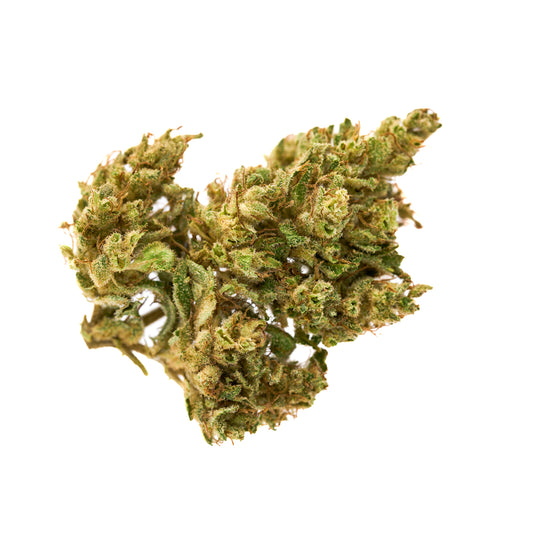
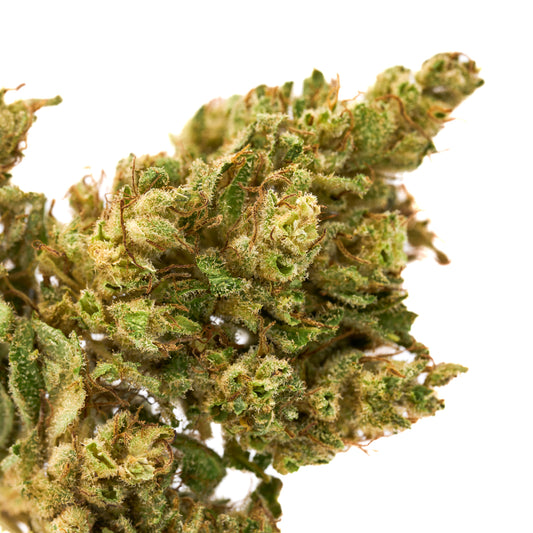
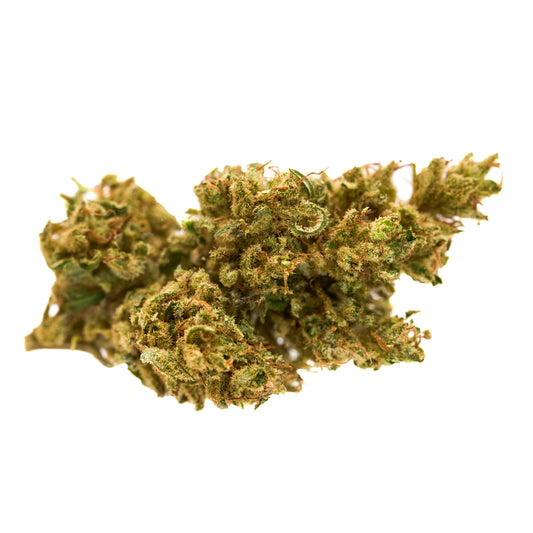
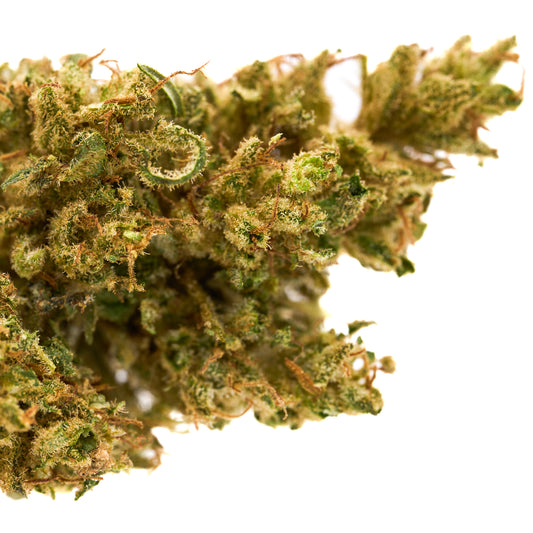
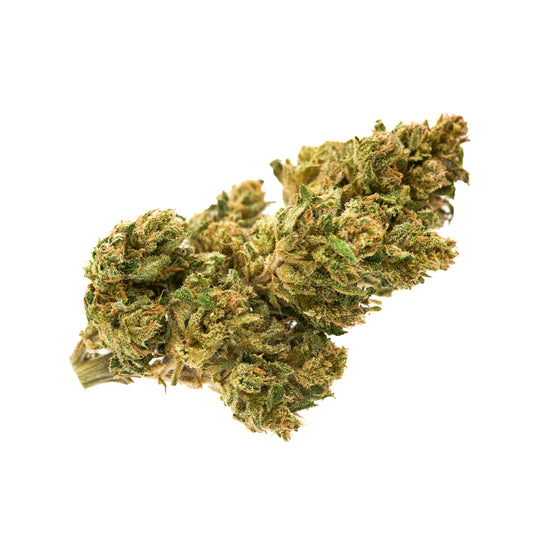
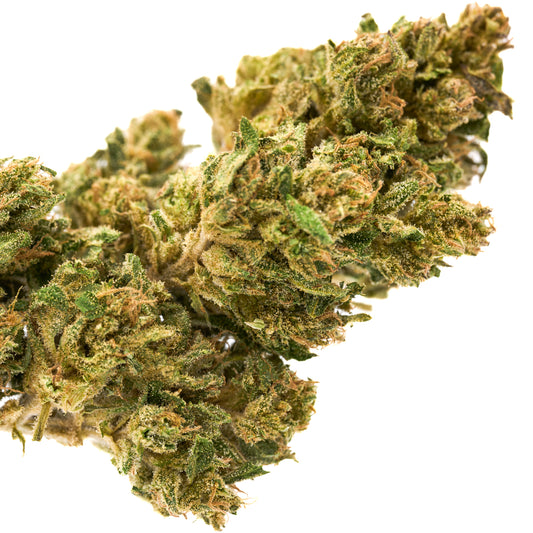



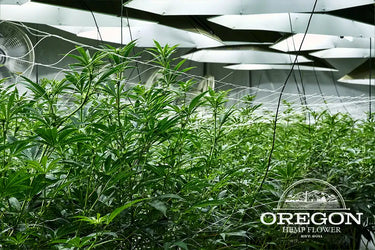

Leave a comment
Please note, comments need to be approved before they are published.